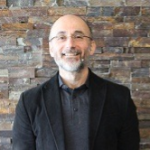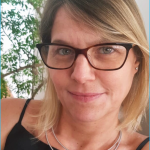Committees, Chairs and Boards
Conference Co-Chairs

Dr. David Moher is a clinical epidemiologist, and professor of Epidemiology and Public Health, University of Ottawa. Professor Moher has been involved with the World Conference of Research Integrity for many years. He led an international team resulting in the “The Hong Kong Principles for assessing researchers: Fostering research integrity”, an output of the WCRI meeting in Hong Kong. Professor Moher spends his time trying help to improve publication science as director of the Centre for Journalology.

Chris Graf is the Research Integrity Director at Springer Nature, in charge of leading the continued development and implementation of Springer Nature’s research integrity strategy, leading a team accountable for assuring the highest standards for research integrity in all of Springer Nature’s publications, working with many good colleagues inside Springer Nature and with many good academic partners outside Springer Nature. Chris also serves the publishing sector with a voluntary role at the STM Association, the global trade association for academic and professional publishers, where he chairs a committee of senior publishing industry executives overseeing governance of the STM Integrity Hub, and the STM Research Integrity Committee. In 2023 Chris was appointed to a position as committee member of the UK Committee on Research Integrity, a new organisation hosted by UKRI, that promotes research integrity across the UK and internationally.

Lex Bouter is Professor Emeritus of Methodology and Integrity at the Department of Epidemiology and Data Science of the Amsterdam University Medical Centers and the Department of Philosophy of the Faculty of Humanities of the Vrije Universiteit. He is involved research and teaching on research integrity and open science topics. He was appointed as tenured Professor of Epidemiology in 1992 and served his university as its rector between 2006 and 2013. Professor Bouter has supervised 79 PhD students, of whom to date 17 were appointed as professor. He is the founding chair of the World Conferences on Research Integrity Foundation.
Program Committee

Lex Bouter is Professor Emeritus of Methodology and Integrity at the Department of Epidemiology and Data Science of the Amsterdam University Medical Centers and the Department of Philosophy of the Faculty of Humanities of the Vrije Universiteit. He is involved research and teaching on research integrity and open science topics. He was appointed as tenured Professor of Epidemiology in 1992 and served his university as its rector between 2006 and 2013. Professor Bouter has supervised 79 PhD students, of whom to date 17 were appointed as professor. He is the founding chair of the World Conferences on Research Integrity Foundation.

Jennifer Byrne is Director of Biobanking- NSW Health, and Professor of Molecular Oncology, University of Sydney, where she leads the PRIMeR group (Publication and Research Integrity in Medical Research). Jennifer was one of Nature’s 10 people in 2017 for highlighting repetitive human gene research papers with critical reagent errors, and she was one of 3 experts who testified before US Congress at their 2022 congressional hearing into paper mills and research misconduct. Jennifer’s research team has continued to identify features of flawed human gene and cancer research, including descriptions of human cell line models that may not exist.


Chris Graf is the Research Integrity Director at Springer Nature, in charge of leading the continued development and implementation of Springer Nature’s research integrity strategy, leading a team accountable for assuring the highest standards for research integrity in all of Springer Nature’s publications, working with many good colleagues inside Springer Nature and with many good academic partners outside Springer Nature. Chris also serves the publishing sector with a voluntary role at the STM Association, the global trade association for academic and professional publishers, where he chairs a committee of senior publishing industry executives overseeing governance of the STM Integrity Hub, and the STM Research Integrity Committee. In 2023 Chris was appointed to a position as committee member of the UK Committee on Research Integrity, a new organisation hosted by UKRI, that promotes research integrity across the UK and internationally.

Helene Ingierd is the General Director of the National Research Ethics Committees in Norway. Ingierd holds a Ph.D. in political science from the University of Oslo and has been a Research Fellow at the Peace Research Institute, Oslo (2001-2008). She has edited several anthologies on research ethics, including Internet Research Ethics, 2015, (w/Hallvard Fossheim) and Interessekonflikter i forskning (Conflicts of Interest in Research), 2019, (w/Ingrid Bay Larsen and Kjellrun Hiis Hauge). Ingierd was an Expert Group member in the project Integrity and security in the global research ecosystem (2022), OECD Global Science Forum, and is a member of the Board in ENRIO.

Limbanazo Mindiera Matandika, PhD, is a newly elected Advisory Member of the African Research Integrity Network. She has served as an Interim Steering Committee member since 2015 and co-founded Africa’s first network dedicated to promoting responsible research conduct in Africa. A bioethicist and social scientist by training, Dr. Matandika obtained her PhD in bioethics (2023) from the University of Malawi, College of Medicine. She holds a Master of Social Science degree in Health Research Ethics (2017) from the University of KwaZulu-Natal in South Africa and a master’s in public health degree (2014) from the University of Malawi, College of Medicine. Dr. Matandika currently works as a Research Ethics Committee Administrator at the Malawi University of Business and Applied Sciences. She is active in bioethics and research integrity leadership both in Malawi and globally, having developed an online module on Research Integrity and currently serving as a Research Integrity Ambassador for Malawi. Currently she’s serving as a guest editor with the Journal of Clinical Epidemiology under the methodological aspects of research integrity culture series. This series aims to cover a broad range of methodological issues of relevance to research integrity, scientific misconduct, and questionable research practices.She has received various travel grants to present as a keynote speaker and panellist at international conferences, reflecting on research ethics and integrity from a low- and middle-income setting. Her research interests include conflict of interest, authorship, decolonization of global health, embedded ethics, and clinical ethics

Dan is the Director of Publications and Executive Editor for the American Urological Association and the founder of PIE (Publication Integrity & Ethics) Consulting, LLC. He has been in scholarly publishing for nearly three decades. Dan has been active in COPE (Committee on Publication Ethics) since 2016, and is currently Chair. As Chair, he serves the interests of over 13,500 journals across the entire spectrum of scholarly research, and interfaces with editors and publishers from around the world. Dan has been involved in all aspects of publishing including peer review, publication ethics, and personnel and financial management of journals.

Dr. David Moher is a clinical epidemiologist, and professor of Epidemiology and Public Health, University of Ottawa. Professor Moher has been involved with the World Conference of Research Integrity for many years. He led an international team resulting in the “The Hong Kong Principles for assessing researchers: Fostering research integrity”, an output of the WCRI meeting in Hong Kong. Professor Moher spends his time trying help to improve publication science as director of the Centre for Journalology.

Carmen Penido has a PhD in Cellular and Molecular Biology (FIOCRUZ) and is a researcher at the Centre for Technological Development in Health/Institute of Drug Technology, at FIOCRUZ, Brazil. Carmen is a faculty member engaged in intra- and extramural teaching and research regarding Research Integrity. Chair of the Research Integrity Committee at FIOCRUZ, a former member of the Institutional Review Board at the Federal University of Rio de Janeiro (2019-2021), elected member of the Brazilian Reproducibility Network board (2025), and co-chair of the Program Committees for the VI and VII Brazilian Meeting on Research Integrity, Science and Publication Ethics (BRISPE).
International Advisory Committee

Jenny Ariansen is Director, Research Integrity, at Duke University. As the Director for the ASIST group, Jenny is focused on bringing the conceptual components of research ethics into practical service for researchers at Duke by providing consultation, data management solutions and trainings in responsible conduct of research.

Elisabeth Bik, PhD, is a Dutch-American microbiologist who has worked for 15 years at Stanford University and 2 years in industry. Since 2019, she is a science integrity volunteer and consultant who scans the biomedical literature for images or other data of concern. She has found over 8,000 problematic scientific papers. Her work has resulted in over 1,300 retractions and another 1,000 corrections. For her work on exposing threats to research integrity, she received the 2021 John Maddox Prize and the 2024 Einstein Foundation Award.
Website Blog

In preclinical as well as in clinical studies Ulrich Dirnagl’s research has revealed pathobiology which impact on the outcome after a stroke. Several of these mechanisms can be therapeutically targeted, clinical trials are under way. In addition, through meta-research he was able to identify opportunities for improving research practice and to obtain evidence for the impact of interventions targeted to increase the value of biomedical research. At the Charité Universitätsmedizin Berlin Ulrich Dirnagl is Professor of Clinical Neuroscience and served as founding director of the Department of Experimental Neurology from 1999 until 2022. Since 2017 he is also the founding director of the QUEST Center for Responsible Biomedical Research at the Berlin Institute of Health. QUEST aims at overcoming the roadblocks in translational medicine by increasing the value and impact of biomedical research through maximizing the quality, reproducibility, generalizability, and validity of research.

Jun Fudano is a Professor at the Center for Higher Education Studies, Waseda University. Prior to joining Waseda in 2020, he was a Professor of Science and Engineering Ethics at Tokyo Institute of Technology (Tokyo Tech), affiliated with the the Institute of Liberal Arts. From 2004 to 2015, he served as Director of the Applied Ethics Center for Engineering and Science at Kanazawa Institute of Technology (KIT). Fudano has played a leading role in advancing science and engineering ethics education in Japan, designing programs and teaching at universities, research institutes, and corporations. He serves on the Board of Trustees of the Association for the Promotion of Research Integrity (APRIN). He contributed to drafting the Science Council of Japan’s 2006 “Code of Conduct for Scientists” and was a member of UNESCO’s World Commission on the Ethics of Scientific Knowledge and Technology (COMEST) from 2003 to 2009. He holds a doctorate in the history of science from the University of Oklahoma.

Sheila Garrity is the Director for the Office of Research Integrity (ORI). Before coming to ORI, Ms. Garrity served as Associate Vice President of Research Integrity at George Washington University (GW) from 2014 to 2023 where she oversaw operations of the Office of Laboratory and Radiation Safety, Office of Human Research, Office of Animal Research, Office of Research Integrity and Regulatory Affairs and served as the institutional Research Integrity Officer (RIO). At GW Garrity was responsible for policy development, informational sessions, and development of educational modules to assist investigators with understanding their ethical and fiduciary responsibilities regarding their research. Prior to that, Ms. Garrity spent more than 20 years at Johns Hopkins University School of Medicine where she served as the director of the Division of Research Integrity and Research Integrity Officer (RIO). She is a founding member and first president of the Association for Research Integrity Officers (ARIO, founded 2013). Ms. Garrity was in the first group of teaching RIOs when ORI launched its first series of RIO Bootcamps in the early 2000’s. Ms. Garrity earned her JD from the University of Maryland School of Law and her MBA and MPH at Johns Hopkins where she also received a certificate in Health and Human Rights.

Ms. Lescano has worked at the U.S. Naval Medical Research Unit SOUTH (NAMRU SOUTH) for over 35 years and since 2005, as the Head of the Research Administration Program. Under this position, she has founded and later coordinated the Scientific Review Board, the Research Ethics Committee, and the Human Subjects Protection Training Program. More recently, her responsibilities have increased to include the Institutional Animal Care and Use Committee (IACUC), among other functions. Ms. Lescano is an attorney and holds a Masters in Bioethics, in addition to having completed the course work for the Masters in Epidemiological Research. Her experience extends from IRB administration to ethical oversight of IRB approved studies, in addition to supporting NAMRU SOUTH and other Peruvian organizations to develop their institutional policies and procedures, and their education programs in the field of human subject protections, scientific integrity and animal welfare in research. Ms. Lescano has also focused on research integrity education programs for over 10 years, preparing modules for the original Peruvian course on Responsible Conduct of Research, coordinating curricula for local courses, as well as workshops for undergrad and post-graduate programs, and participating as a guest speaker in academic and research organizations in Peru and neighboring countries. Additionally, Ms. Lescano has led and supported several research projects in this field. From 2019 to date, she has been a member of the organizing committee of the World Conferences of Research Integrity conducted in Hong Kong in 2019, Cape Town, South Africa in 2022, and in Athens, Greece, this coming June 2024.

Malcolm Macleod is Professor in Neurology and Translational Neuroscience at the Centre for Clinical Brain Sciences, University of Edinburgh. After training in Internal Medicine his PhD concerned the neuroprotective actions of FK506 and post-doctoral work in the Seckl lab defined a neuroprotective role for increased expression of the mineralocorticoid receptor. During a pivotal sabbatical year with Donnan at the National Stroke Research Institute in Melbourne he began an involvement with stroke clinical trials, and it was in an effort to identify suitable drugs for such clinical trials that he began to develop techniques to allow the systematic review and meta-analysis of data from animal studies.

Dr. Nandita Quaderi is a Senior Vice President and the Editor-in-Chief for Web of Science at Clarivate. Nandita has oversight of the Web of Science editorial division, the Institute for Scientific Information and the Research Professional News team. She has overall responsibility for editorial strategy, selection of Web of Science content and inclusion in Journal Citation Reports. Nandita’s focus is on protecting the integrity of the scholarly record, promoting the responsible use of bibliometrics and developing a responsible framework for evaluating the societal impact of research. Nandita joined Clarivate as an accomplished senior publishing executive with a strong research background. Previously, she worked in leadership roles at BMC and Springer Nature and was a Principal Investigator at King’s College London. Nandita has a BA in Chemistry from the University of Oxford and a PhD in Molecular Genetics from Imperial College London.
Web of Science ResearcherID: V-8708-2019
National Advisory Committee

Mark is the Chief AI Officer at Western University and a Professor in the Department of Computer Science with cross-appointments in five other departments, The Rotman Institute of Philosophy, and The Western Institute for Neuroscience. He is also a faculty affiliate of Toronto’s Vector Institute for Artificial Intelligence. Mark was named in the Maclean’s magazine “Power List 2024” of the top 100 Canadians shaping the country and in Constellation Research’s AI150, a list of top 150 top global executives leading AI transformation efforts. In October 2024, Mark was appointed the Natural Sciences and Engineering Research Council of Canada (NSERC) Scholar in Residence in Artificial Intelligence. Mark has previously served as the Vice-President (Research) at the Canadian Institute for Advanced Research(CIFAR), and Chief Digital Information Officer, Special Advisor to the President, and Associate Vice-President (Research) at Western.

Dr. Cynthia Fekken (PhD, Western Ontario, 1983) spent her career as a professor of Psychology, Queen’s University, becoming Professor Emerita in 2023. Dr. Fekken has been registered with the College of Psychologists of Ontario since 1989. She publishes on personality theory and psychological assessment. Her administrative experience includes: Acting Head, Department of Psychology; Associate Dean (Studies), Associate Dean at-large, and Associate Dean (Research), Faculty of Arts and Science; and Associate Vice Principal (Research) and Research Integrity Officer, Queen’s University. Since 2022, Dr. Fekken has been a member of the Panel which advises the Secretariat on the Responsible Conduct of Research of Canada.

Dr. Diane Martz is the University of Saskatchewan (U of S) Responsible Conduct of Research (RCR) Specialist. Diane has a long-standing interest in research ethics and responsible conduct of research from the perspective of international and rural research and has extensive experience working on large research teams and in community-based research focused on the social, economic and cultural dimensions of rural health. She has worked on research ethics and RCR as a researcher, as a Behavioral REB Chair, as Director of the Research Ethics Office, as a Vice-President with the Canadian Association of Research Ethics Boards, on the Institute Advisory Board of the CIHR Institute of Gender and Health and as a Panel Member of the Tri-Agency Panel on Research Ethics. Diane has worked on successful initiatives to harmonize behavioral and biomedical research ethics processes provincially and nationally and received the CAREB President’s Award for that work. She has been extensively involved in education and policy development for research ethics and responsible conduct of research, developing a mandatory online course for all U of S graduate students on Responsible Conduct of Research (RCR) and contributing to the TCPS2 Core-2022 (Course on Research Ethics).

Shawn McGuirk is Director for Research Security at the Natural Sciences and Engineering Research Council of Canada (NSERC), where his team coordinates the harmonized implementation of research security measures at NSERC and across the Canadian federal granting agencies, working closely with Canada’s Research Security Centre and other federal partners. Shawn also represents NSERC as co-chair of the Global Research Council’s Responsible Research Assessment Working Group. He joined NSERC in 2018 as a Canadian Science Policy Fellow and is an alumnus of the Government of Canada’s Recruitment of Policy Leaders program. Previously, he conducted research at the Goodman Cancer Research Institute of McGill University centered on the role of cellular metabolism in cancer progression.

Director, Institute for Better Health Operations, Trillium Health Partners (Mississauga, ON)
With over 18 years of experience, and recognized as a national and international solution-focused leader in research administration and operations, Delilah Ofosu-Barko builds and maintains synergistic, dynamic, and highly engaged teams of leaders. Leveraging strategic networks, she is committed to enhancing enabling supports and services for health research, innovation, and improvement, including tools, processes, and approaches to effectively manage research, innovation, and improvement activities. Delilah leads the operations of the Institute for Better Health; enhancing the enabling services for researchers, innovators and project leads. She continues to serve on various regional, national, and international committees for research practice organizations.

Catherine Paquet is the Director of Research Ethics and Integrity at the University of Ottawa, where she oversees the administration and strategic direction of the University’s integrity framework and research ethics review processes. She has worked in research ethics since 2002 and has led the Office of Research Ethics and Integrity (OREI) since 2010, serving as the University’s primary contact for responsible conduct of research. A former President of CAREB‑ACCER (2018–2020), she has served on its Board of Directors (2012-2023) and participates in numerous national committees and forums focused on research ethics and integrity. She has expertise in research compliance, policy interpretation, and ethics governance and review.

Guillaume Paré works in ethics and integrity with nearly 20 years of experience. He is the Director of the Office of Research Ethics and Integrity at Polytechnique Montréal, which he established in 2024 after joining the institution in 2019 as Advisor to the Director of Research and Innovation. He teaches the Ethics and Integrity in Professional Settings course at Université de Montréal since 2013. He co-leads the development of Polytechnique Montréal’s Academic Freedom Policy and Research Data Management Policy. Since November 2023, he serves as President of the Association of Research Administrators of
Québec (ADARUQ).

Karen Wallace is the Executive Director for the Secretariat on Responsible Conduct of Research. The Secretariat is responsible for the implementation of the Tri-Agency Framework: Responsible Conduct of Research (RCR Framework) and the Tri-Council Policy Statement: Ethical Conduct for Research Involving Humans (TCPS) on behalf of Canada’s three research funding Agencies (the Canadian Institutes of Health Research (CIHR), the Natural Sciences and Engineering Research Council of Canada (NSERC) and the Social Sciences and Humanities Research Council of Canada (SSHRC)).
She has been working in the research integrity and responsible conduct of research (RCR) space since joining CIHR more than 20 years ago. Karen played an integral role in the development of the first Canadian framework on RCR. She served as a member and then as vice-Chair of the National Research Council Canada’s Research Ethics Board for six years. In 2011, she joined the Secretariat as Senior Advisor for RCR where she worked closely with the Advisory Panel on Responsible Conduct of Research whose mandate entails providing a coherent and uniform approach to promoting RCR and addressing allegations of breaches of Tri-Agency policies. Since 2021, Karen has been the Executive Director of the Secretariat where she leads a dedicated team responsible for developing and interpreting guidance on responsible conduct of research and the ethical conduct for research involving humans in Canada.

Dr. Bradly Wouters is an internationally recognized leader and cancer researcher. He became Executive Vice President of Science and Research at UHN in 2016 and prior to that served as the Interim Director of Research at the Princess Margaret Cancer Centre since 2014. He joined UHN in 2008 as Senior Scientist and Director of the Princess Margaret Hypoxia Program, and has held faculty appointments at the University of Toronto in the Department of Medical Biophysics and the Department of Radiation Oncology since that time. Prior to joining UHN, Dr. Wouters was Professor and Head of Experimental Radiation Oncology at Maastricht University in the Netherlands. As EVP of Science and Research, Dr. Wouters is focused on creating an environment that incentivizes, facilitates, and rewards excellence in basic, translational, and clinical research across all elements of UHN.
Local Organizing Committee

Alex D’Arcy is a Professor in Linguistics and the Director of the Sociolinguistics Research Lab (SLRL) at the University of Victoria. She has a BA in English Language from the University of British Columbia, an MA in Linguistics from Memorial University of Newfoundland, and a PhD in Linguistics from the University of Toronto. She taught at the University of Canterbury in New Zealand for four years before joining the Department of Linguistics at the University of Victoria in 2010. Alex specializes in the study of language variation and change. Her research combines quantitative modeling with her interests in theoretical linguistics; she has published on lexical, phonological, syntactic, morphosyntactic, and discourse-pragmatic variation and change, both synchronic and diachronic. Her research centers on English, and she has worked on a range of varieties (national, regional, social, and ethnic). Her current project examines how children participate in advancing language change. She is also engaged in a number of collaborative projects with researchers in North America and abroad. These projects examine a range of research questions, from acoustic analysis and description to the social reflexes of syntactic variation.

Dr. Trevor Davis is SFU’s Executive Director, Research Operations, responsible for university-wide research support. He oversees grants and contracts, core facilities, policies, research information and admin systems, research security, research ethics, COI and RCR programs, SFU’s supercomputing resources and larger research infrastructure projects. Trevor serves as SFU’s Research Integrity Officer and has been involved in RCR/integrity for over 20 years across a number of institutions. His academic background is in the earth sciences, with BSc and MSc from U of Victoria, and PhD from the U of British Columbia. His academic foci are spatial databases and the modeling of uncertainty in natural processes, metascience and open science.

Karina McInnis leads the development and management of the University-wide operational, planning, and policy framework related to the University of Guelph’s research endeavours and oversees the development and preparation of research initiatives with the federal tri-agency granting councils and other external research funding agencies. Responsible for operational units within the Office of the Vice-President (Research Services) including the following: the Research Services Subcommittee; Research Support Services (Grants and Contracts); Research Ethics; Animal Care Services; Strategic Programs and Infrastructure Grants; Research Legal Review; Research Risk Management; Research Information Technology and Management Systems; and Research Analysis and Reporting.
WCRIF Governing Board

Dr Daniel Barr is the Principal Research Integrity Advisor at RMIT University, Australia, specialising in responsible research governance, management, and teaching. He contributes globally to research integrity through roles with the World Conferences on Research Integrity Foundation, the Asia-Pacific Research Integrity Network, and the Australian Academy of Science. Dr Barr co-authored the APEC Guiding Principles for Research Integrity and co-chaired the 6th World Conference on Research Integrity held in Hong Kong. In 2021, Dr Barr was awarded the Paul Taylor Medal for Excellence in Research Integrity by the Australasian Research Management Society.


Chris Graf is the Research Integrity Director at Springer Nature, in charge of leading the continued development and implementation of Springer Nature’s research integrity strategy, leading a team accountable for assuring the highest standards for research integrity in all of Springer Nature’s publications, working with many good colleagues inside Springer Nature and with many good academic partners outside Springer Nature. Chris also serves the publishing sector with a voluntary role at the STM Association, the global trade association for academic and professional publishers, where he chairs a committee of senior publishing industry executives overseeing governance of the STM Integrity Hub, and the STM Research Integrity Committee. In 2023 Chris was appointed to a position as committee member of the UK Committee on Research Integrity, a new organisation hosted by UKRI, that promotes research integrity across the UK and internationally.





